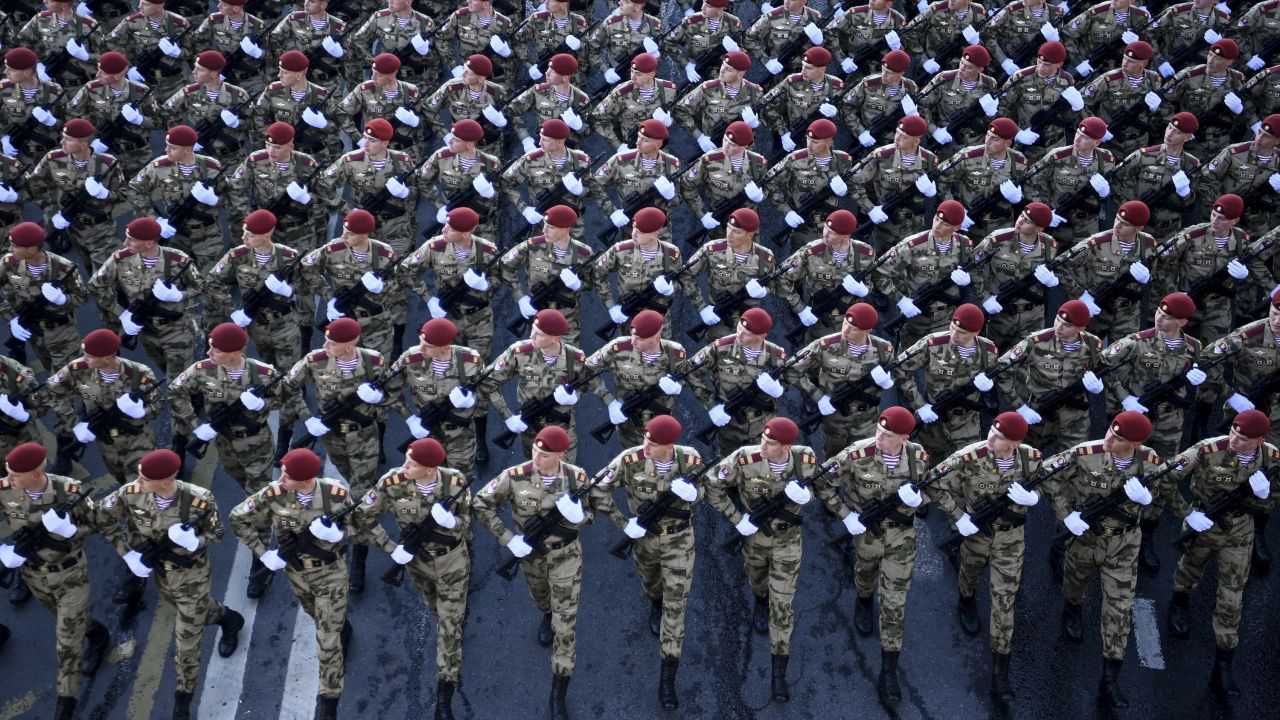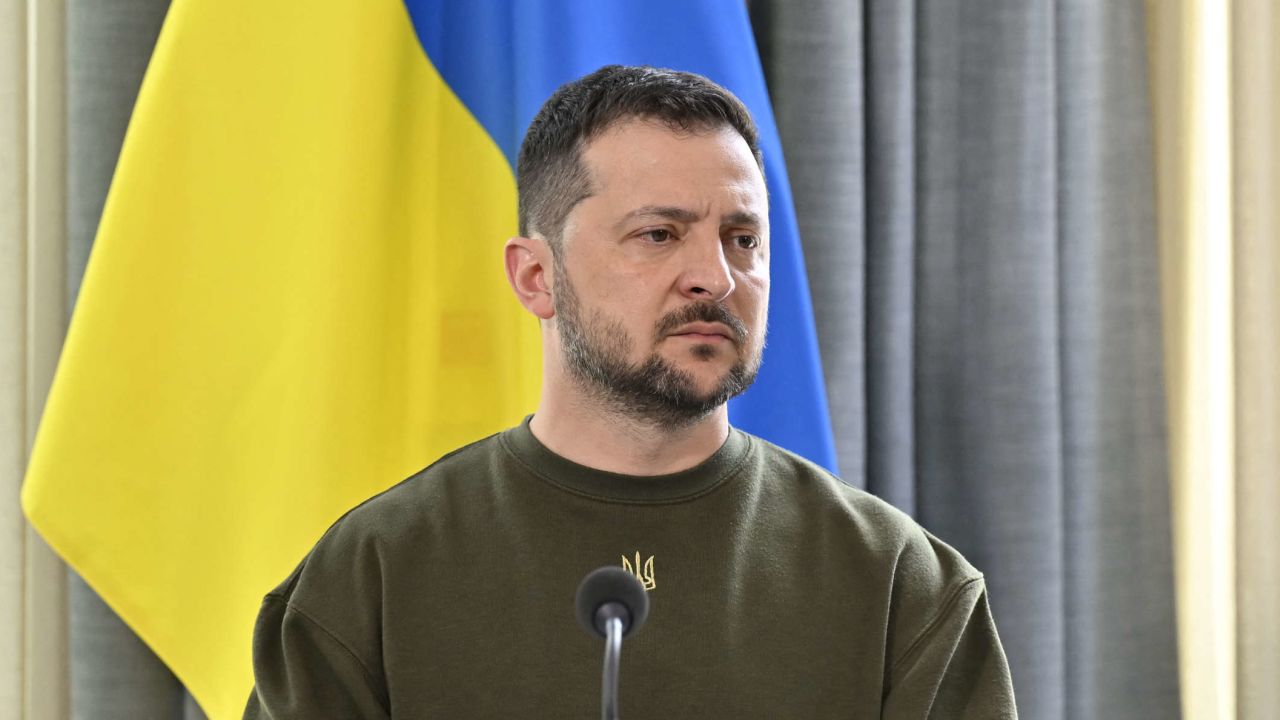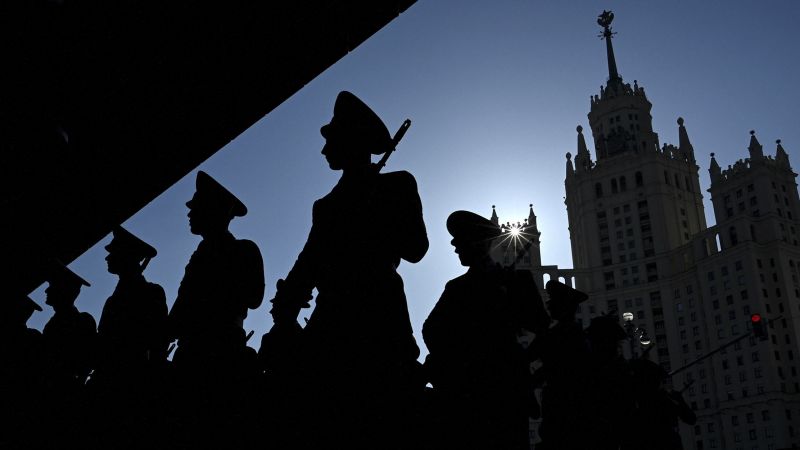CNN
—
Thousands of people will line the streets of Moscow’s Red Square on Tuesday as part of Russia’s annual Victory Day parade, when the Kremlin will display a front of military might and grandeur contrasting with its faltering military campaign on the frontlines in Ukraine.
But several regions in Russia – many near the border with Ukraine – have scaled down preparations for the May 9 spectacle due to security concerns and a lack of military equipment to display.
The Moscow parade is an exhibition of patriotism marking the Soviet Union’s role in defeating Nazi Germany in World War II. It was on May 8, 1945, (May 9 in Moscow’s time zone) that Germany signed its Instrument of Surrender in Berlin, ending the fighting in Europe. The USSR suffered the most casualties of any nation – about 27 million soldiers and civilians died.
It is the most significant day of Russian President Vladimir Putin’s calendar, as he has long used it to rally public support and demonstrate the country’s military prowess. On the eve of the parade, the Russian leader paid tribute to “those whose unparalleled feats on the battlefields and selfless work in the rear made it possible to crush the Nazi invaders and defend the freedom of their native land.”
“Today, our moral duty is to sacredly preserve the traditions of friendship and mutual assistance bequeathed by our fathers and grandfathers, not to allow the historical truth about the Great Patriotic War to be distorted, as well as the justifications of the Nazis, their accomplices and current ideological heirs,” the Kremlin said in a statement on Monday.
But in light of two recent alleged Kremlin drone attacks, deepening fissures between senior Russian officials over war tactics, and an expected Ukrainian spring offensive, tensions in Moscow are at an all-time-high ahead of the second parade since Russia launched its invasion.

Putin has historically led the annual military parade on the Red Square with displays of military hardware including tanks, missiles, and other weapons systems, before a wreath-laying ceremony at the Tomb of the Unknown Soldier near the Kremlin wall, to honor the memory of those who perished in the battles.
He is also scheduled to make an annual speech at the ceremony in the capital, where more than 10,000 people and 125 units of various types of weapons and equipment are expected to be displayed, according to Defense Minister Sergei Shoigu.
Last year the ministry announced 11,000 people and 131 types of weapons were involved in the military parade, with an airshow of 77 aircraft and helicopters.
World leaders such as former German Chancellor Angela Merkel and former UN Secretary-General Kofi Annan attended the military parade in previous years. But such displays of solidarity have faded in recent years, after Putin’s invasion of Crimea in 2014 and the war in Ukraine fractured diplomatic ties.
Moscow will be under pressure to strengthen its show of defenses and unity on Tuesday, after last week’s alleged drone strike on the Kremlin shattered the most powerful symbol of the Russian presidency.
Kyiv and its Western allies exchanged thorny memos with Moscow after it accused Ukraine of carrying out orders from the US in an attempted assassination against Putin. Ukraine and Washington vehemently denied the allegations.
The cause of the explosions is unknown, but the optics of a symbolic attack against the Kremlin gave it an opportunity to rally support for Putin from Russians as critics continue to speak out against Moscow’s full-scale invasion.
On Monday, Russian oligarch Andrey Kovalev called Moscow’s military campaign “a terrible war.”
“The whole world is against us,” he said in a video speech later shared on Telegram.
At the same time, strained relations between senior Russian officials exploded into a public display of disunity on Thursday after Wagner chief Yevgeny Prigozhin threatened to withdraw its forces from the city of Bakhmut due to insufficient support from the Kremlin.
Prigozhin appeared to walk back on his comments on Sunday, but the heated outburst indicated a lack of morale as Russian forces struggle to break through the key battleground in eastern Ukraine – ahead of an expected spring offensive from Kyiv in the south.

Ukrainian President Volodymyr Zelensky compared Russia to Nazi Germany as he proposed moving Victory Day celebrations a day earlier in a bill presented to lawmakers, in an effort to distance Kyiv from the Kremlin’s celebrations.
Like Russia, Ukraine traditionally commemorates victory over the Nazis on May 9, but that date has become increasingly associated with a parade in Moscow.
“It is on May 8 that most nations of the world remember the greatness of the victory over the Nazis,” Zelensky said Monday.
“We will not allow the joint victory of the nations of the anti-Hitler coalition to be appropriated and we will not allow lies as if the victory could have taken place without the participation of any country or nation.”
Comparing Russia’s invasion of Ukraine to Hitler’s expansionist goals, Zelensky said the goal of both regimes was the same – “enslavement or destruction.”
“Unfortunately, evil has returned,” he said. “Like back then evil rushed to our cities and villages, so it is doing now, like back then it killed our people, so it is doing it now.”

